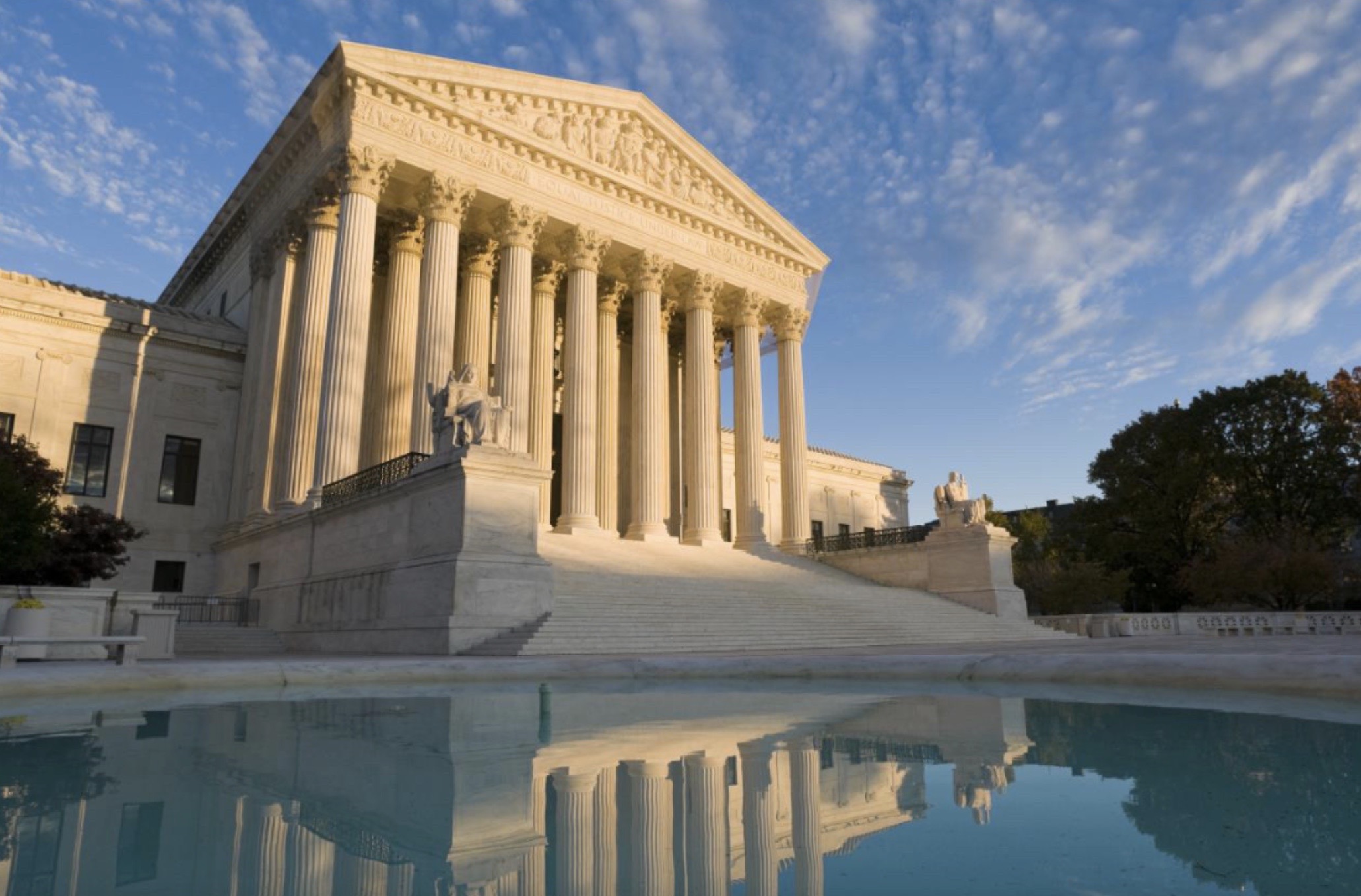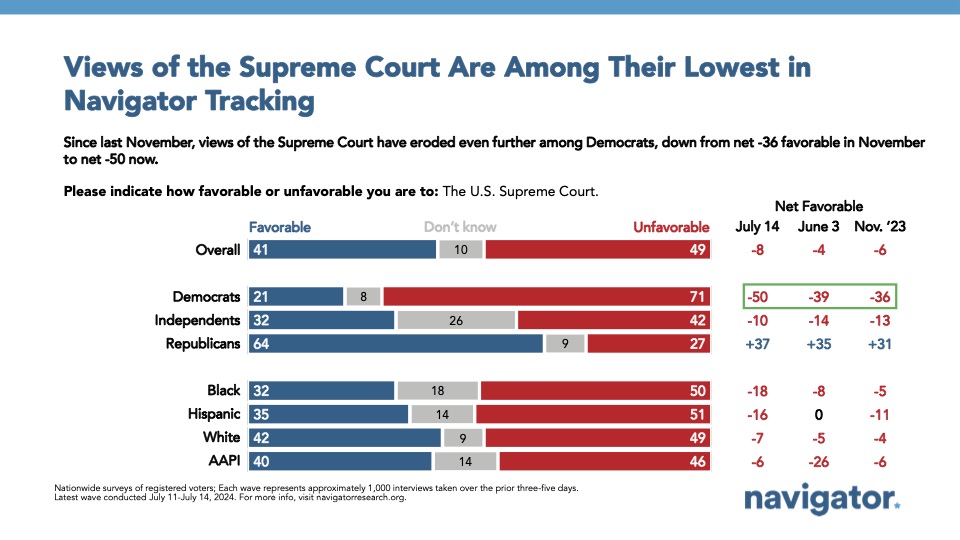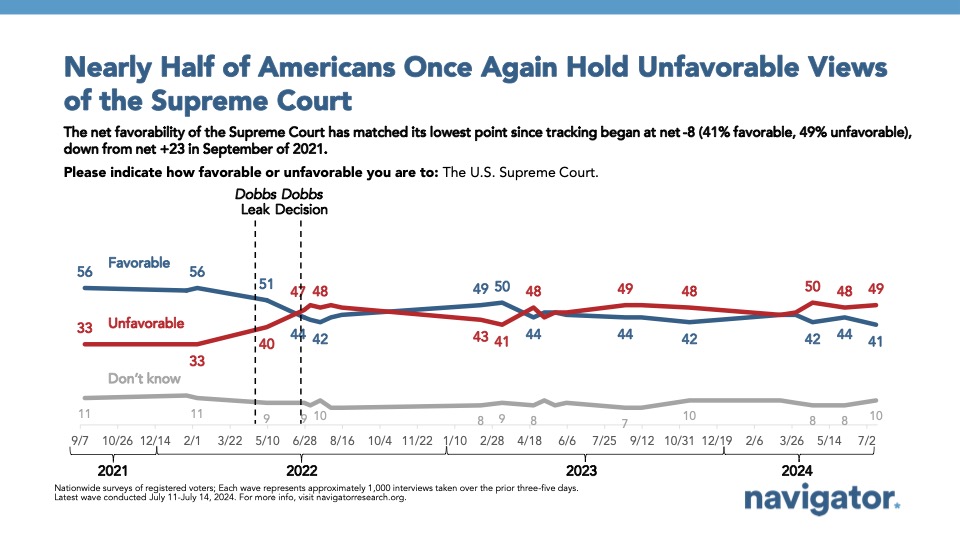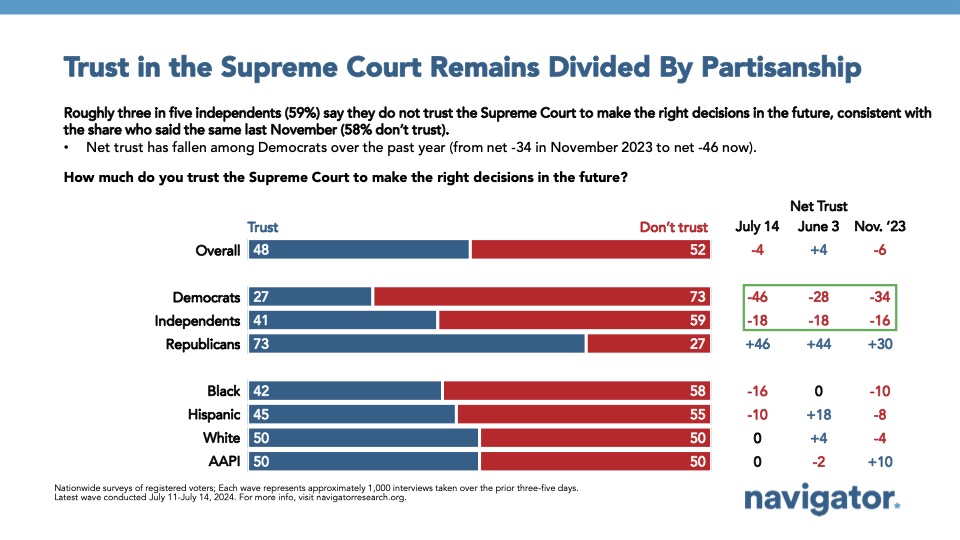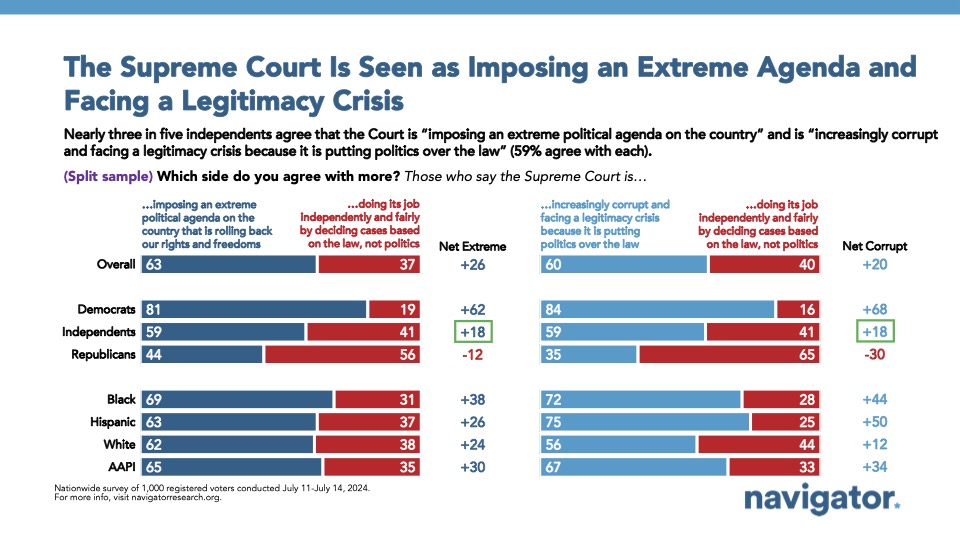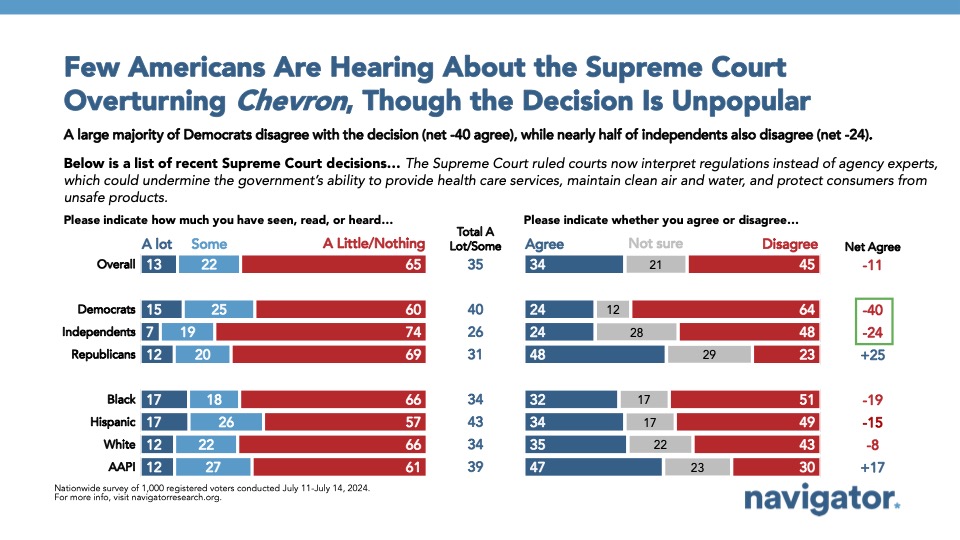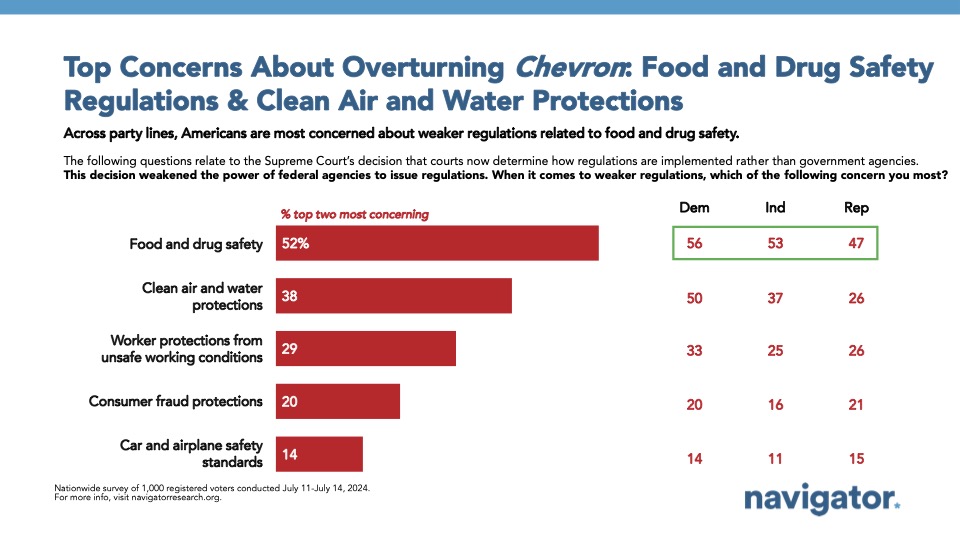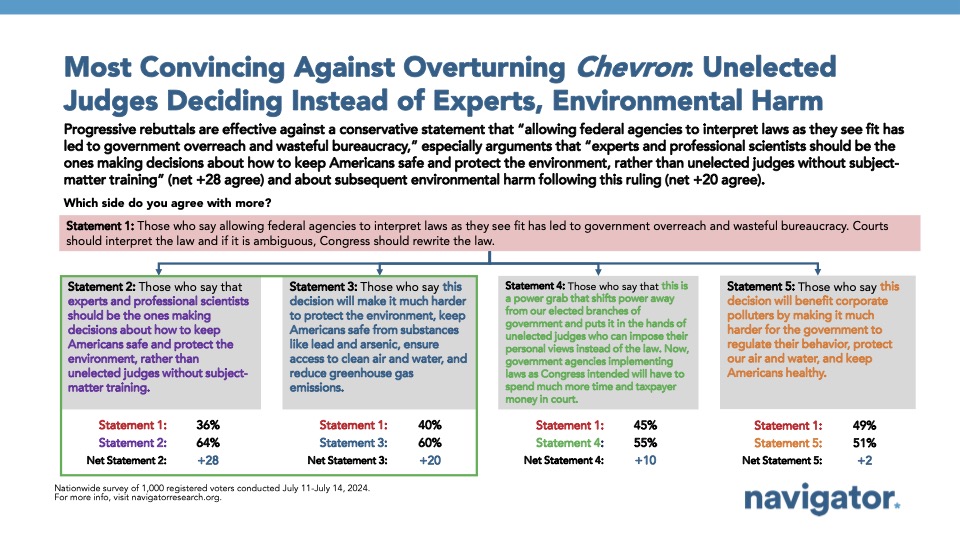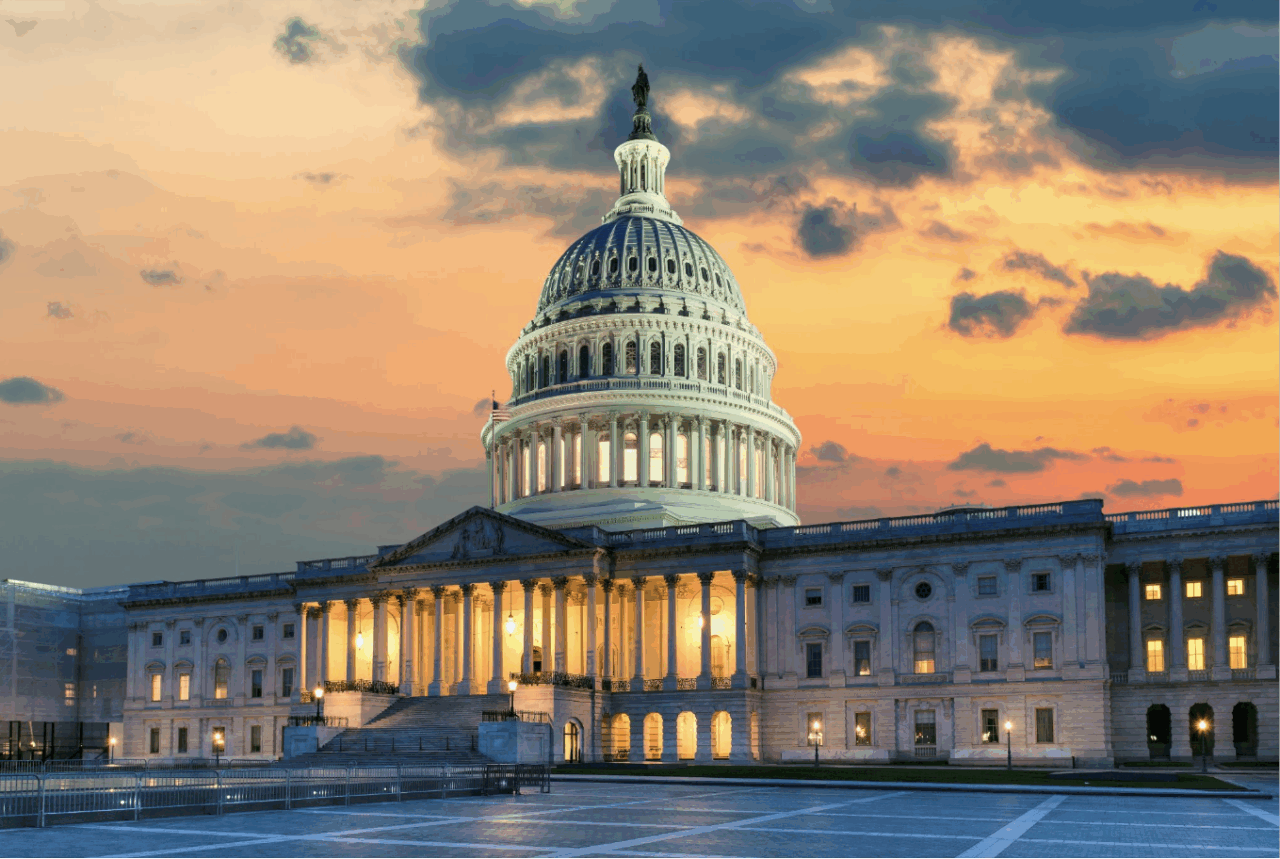Poll: Supreme Court & Chevron Deference
This Navigator Research report contains polling data on tracking perceptions of the Supreme Court following a number of consequential decisions at the end of the latest term, including specifically looking at how Americans evaluate the “Chevron deference” decision ruling that courts interpret regulations instead of agency experts.
NOTE: More than 65% of the interviews conducted for this survey were completed before the attempted assassination of Donald Trump. Analysis was conducted to determine whether there were any significant response differences between interviews conducted before and after, of which there were none.
The Supreme Court has among its lowest favorability ratings since Navigator began tracking.
The Supreme Court continues to earn a net negative favorability rating, a trend consistent for the past two years since overturning Roe v. Wade. Favorability of the Court is underwater by a net -8 (41 percent favorable – 49 percent unfavorable) — matching its lowest net favorable rating in Navigator’s tracking — with opposition driven by a net -50 rating among Democrats (21 percent favorable – 71 percent unfavorable). Independents have a net -10 rating of the Supreme Court (32 percent favorable – 42 percent unfavorable), with independent women further underwater at net -23 (20 percent favorable – 43 percent unfavorable, with 37 percent who do not have enough of an opinion to say).
- A majority of Americans do not trust the Supreme Court to make the right decisions in the future (net -4; 48 percent trust – 52 percent don’t trust); this is the first time since November 2023 in Navigator’s tracking that more Americans were more distrustful of the Court than thought they would make the right decisions in the future.
Three in five agree that the Supreme Court is imposing an extreme political agenda.
Three in five Americans agree more that the Supreme Court is imposing an extreme political agenda and is increasingly corrupt and facing a legitimacy crisis than agree that the Court is doing its job independently and fairly. By 26 points, more Americans agree with a statement that “the Supreme Court is imposing an extreme political agenda on the country that is rolling back our rights and freedoms” (63 percent) than agree that “the Supreme Court is doing its job independently and fairly by deciding cases based on the law, not politics” (37 percent). Independents also agree that the Court is imposing an extreme political agenda over the Court doing its job independently and fairly by 18 points (59 percent imposing an extreme agenda – 41 percent doing its job independently and fairly), and even half of Republicans who do not identify with the MAGA movement are split (51 percent imposing an extreme agenda – 49 percent doing its job independently and fairly).
- More Americans also agree with a statement that “the Supreme Court is increasingly corrupt and facing a legitimacy crisis because it is putting politics over the law” (60 percent) more than that the argument that the Court is acting independently and fairly (40 percent), including independents who agree that it is increasingly corrupt and facing a legitimacy crisis by 18 points (59 percent imposing an extreme agenda – 41 percent doing its job independently and fairly).
A plurality disagree with the Supreme Court decision ruling that courts now interpret regulations instead of agency experts.
By an 11-point margin, Americans disagree with the decision that courts can now interpret regulations “which could undermine the government’s ability to provide health care services, maintain clean air and water, and protect consumers from unsafe products” (34 percent agree – 45 percent disagree), with independents opposed by an even larger 26-point margin (27 percent agree – 53 percent disagree). When it comes to weaker regulations, a majority of Americans are most concerned about the future of food and safety regulations (52 percent) and nearly two in five are most concerned about clean air and water regulations (38 percent).
- Nearly two in three Americans agree more that “experts and professional scientists should be the ones making decisions about how to keep Americans safe and protect the environment, rather than unelected judges without subject-matter training” (64 percent) than agree that “allowing federal agencies to interpret laws as they see fit has led to government overreach and wasteful bureaucracy… courts should interpret the law and if it is ambiguous, Congress should rewrite the law” (36 percent).
About The Study
Global Strategy Group conducted a public opinion survey among a sample of 1,000 registered voters from July 11-July 14, 2024. 100 additional interviews were conducted among Hispanic voters. 79 additional interviews were conducted among Asian American and Pacific Islander voters. 100 additional interviews were conducted among African American voters. 100 additional interviews were conducted among independent voters. The survey was conducted online, recruiting respondents from an opt-in online panel vendor. Respondents were verified against a voter file and special care was taken to ensure the demographic composition of our sample matched that of the national registered voter population across a variety of demographic variables. The margin of error for the full sample at the 95 percent level of confidence is +/- 3.1 percentage points. The margin for error for subgroups varies and is higher.
